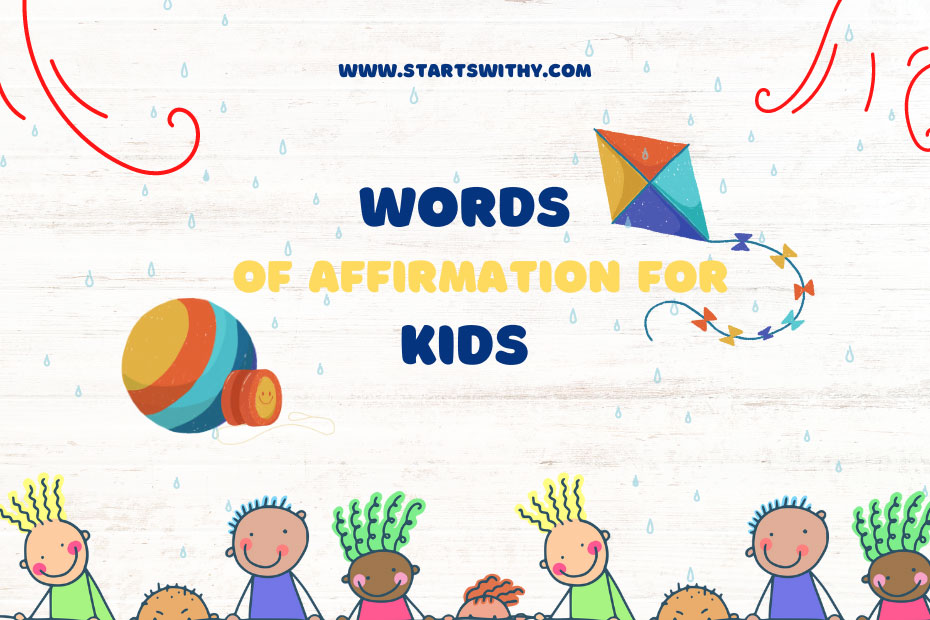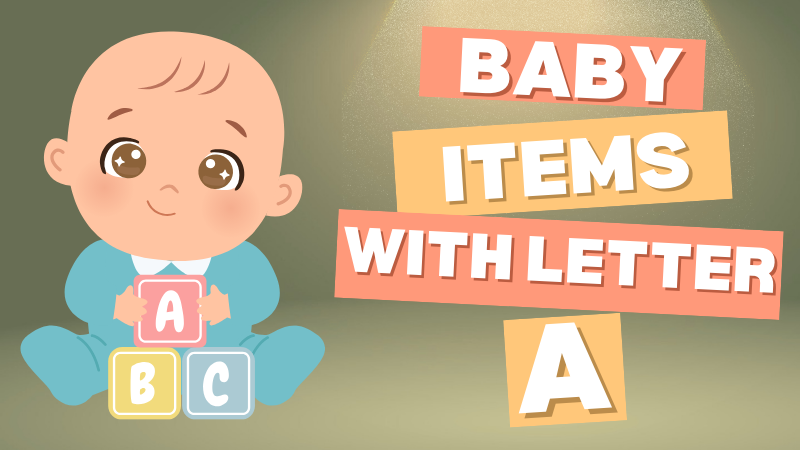Hey there! Are you looking for a way to boost your child’s self-esteem and confidence? Well, you’ve come to the right place! In this article, I’ll be diving into the wonderful world of words of affirmation for kids.
As parents, we all want our children to grow up feeling loved, valued, and capable. And one of the most powerful ways to achieve that is through the power of words. Whether it’s a simple “I’m proud of you” or a heartfelt “You’re doing an amazing job,” the right words can have a profound impact on a child’s self-image and overall well-being.
Why Words of Affirmation are Important for Kids?
When it comes to raising confident and self-assured children, the power of words cannot be underestimated. As a parent, I’ve seen firsthand the impact that words of affirmation can have on a child’s self-esteem and overall well-being. By consistently offering words of encouragement, praise, and validation, we can help our kids develop a positive self-image and a belief in their own abilities.
Children are incredibly perceptive and sensitive to the words that are spoken to them. Positive words and affirmations can become a powerful tool to shape their mindset and reinforce their worth. When we make it a point to acknowledge and appreciate their efforts and achievements, we are instilling in them a sense of value and significance. This, in turn, can boost their confidence and foster a healthy sense of self-worth.
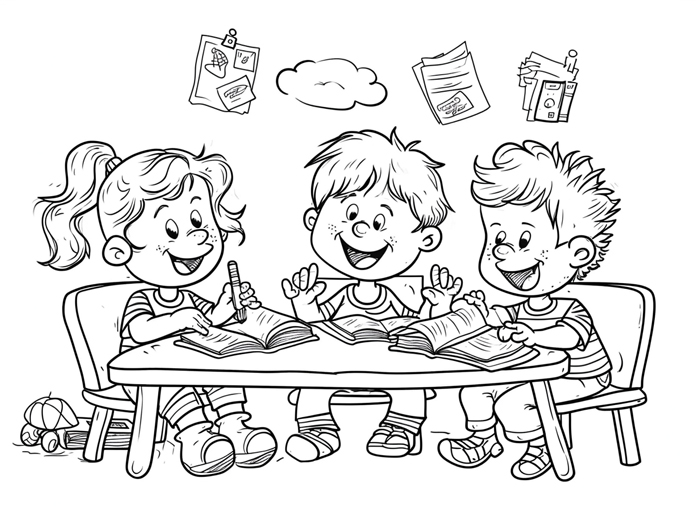
Words of affirmation have a lasting impact on a child’s emotional and psychological development. Research shows that children who receive regular positive feedback and encouragement are more likely to have higher self-esteem and greater resilience in the face of challenges. By providing them with a consistent stream of uplifting words, we are building a strong foundation of confidence and self-assurance that can carry them through life’s ups and downs.
In addition, words of affirmation can strengthen the parent-child bond. When we express love, appreciation, and belief in our children, we are creating a deep connection based on trust and understanding. This not only enhances our relationship with them but also creates a safe and nurturing environment where they feel comfortable expressing themselves and taking risks.
As parents, it is our responsibility to use the power of words to lift our children up and help them thrive. By incorporating words of affirmation into our daily interactions, we can create a positive and empowering atmosphere that cultivates their self-esteem and self-belief. So let’s make it a habit to use kind, encouraging, and affirming words when speaking to our kids. The impact it can have on their lives is truly remarkable.
27 Positive Affirmations for Kids to Boost Self-Esteem
| Affirmation | Meaning |
|---|---|
| I am loved and worthy. | Reminds them of their inherent worth and value. |
| I am brave and I can try new things. | Encourages courage and exploration. |
| I am kind and I make others feel good. | Builds self-awareness and empathy. |
| I am smart and I learn new things every day. | Fosters a love of learning and confidence in abilities. |
| I am unique and special in my own way. | Celebrates individuality and self-acceptance. |
| I am strong and I can overcome challenges. | Builds resilience and problem-solving skills. |
| I can make mistakes and learn from them. | Normalizes mistakes as part of growth. |
| I am a good friend and I make friends easily. | Builds social skills and self-confidence in friendships. |
| My voice matters and I deserve to be heard. | Encourages self-expression and communication. |
| I am creative and I have amazing ideas. | Fosters creative thinking and imagination. |
| I am capable of achieving my dreams. | Sets goals and builds hope for the future. |
| I am grateful for all the good things in my life. | Cultivates appreciation and happiness. |
| I am calm and I can handle my emotions. | Promotes emotional self-regulation and coping skills. |
| I am a good listener and I can learn from others. | Encourages active listening and respect for others. |
| I am responsible and I make good choices. | Builds personal responsibility and decision-making skills. |
| I am healthy and I take care of my body. | Promotes self-care and healthy habits. |
| I am connected to others and I belong. | Fosters a sense of belonging and community. |
| I am a positive influence on the world. | Encourages kindness and making a difference. |
| I am always learning and growing. | Celebrates lifelong learning and personal development. |
| I am worthy of happiness and success. | Promotes self-confidence and positive expectations. |
| I am proud of myself and who I am becoming. | Fosters self-acceptance and appreciation for individual growth. |
| I am loved no matter what. | Unconditional love and acceptance builds a strong foundation for self-esteem. |
| I am capable of anything I set my mind to. | Encourages perseverance and belief in one’s potential. |
| I am a masterpiece, perfectly imperfect. | Celebrates flaws and embraces being unique. |
Positive affirmations for kids about self-esteem
Imagine a garden. Instead of flowers and vegetables, this garden is filled with the vibrant bloom of a child’s self-esteem. Just like any garden needs nurturing, children’s self-confidence thrives on positive reinforcement. One powerful tool in our toolbox? Positive affirmations.
What are affirmations? They’re simple, positive statements that focus on the good within ourselves. When repeated regularly, they can help rewrite negative thoughts and cultivate a stronger sense of self-worth.
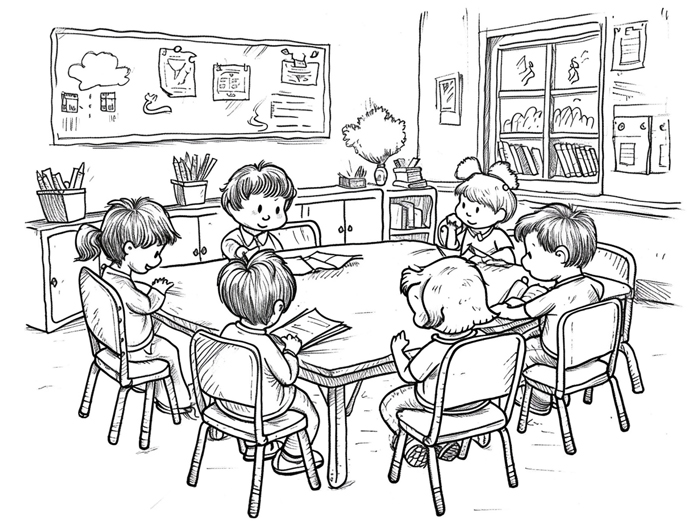
For children, whose minds are sponges soaking up the world around them, these affirmations can be especially transformative. They can become the seeds of confidence that blossom into a sense of resilience, courage, and a belief in their own incredible potential.
Here are some powerful affirmations, ready to be planted in your child’s garden of self-esteem:
Seeds of Confidence:
- “I am brave and I can try new things.”
- “I am kind and I make others feel good.”
- “I am smart and I learn new things every day.”
- “I am unique and special in my own way.”
- “I am strong and I can overcome challenges.”
Seeds of Resilience:
- “I can make mistakes and learn from them.”
- “I am capable of achieving my dreams.”
- “I am grateful for all the good things in my life.”
- “I am calm and I can handle my emotions.”
- “I am responsible and I make good choices.”
Seeds of Connection:
- “My voice matters and I deserve to be heard.”
- “I am a good listener and I can learn from others.”
- “I am a good friend and I make friends easily.”
- “I am healthy and I take care of my body.”
- “I am connected to others and I belong.”
Remember:
- Keep it short and sweet: Simple affirmations are easier for children to remember and repeat.
- Make it personal: Tailor the affirmations to your child’s unique strengths and challenges.
- Lead by example: Show your child the power of affirmations by using them yourself!
- Make it fun!: Turn affirmations into songs, chants, or even silly rhymes to make them more engaging.
Planting the seeds of positive affirmations in your child’s life is one of the most powerful gifts you can give them. With regular care and nurturing, these seeds will blossom into a vibrant garden of self-confidence, empowering them to tackle anything life throws their way. So, start planting today and watch your child’s self-esteem bloom!
How Words of Affirmation Can Boost a Child’s Confidence
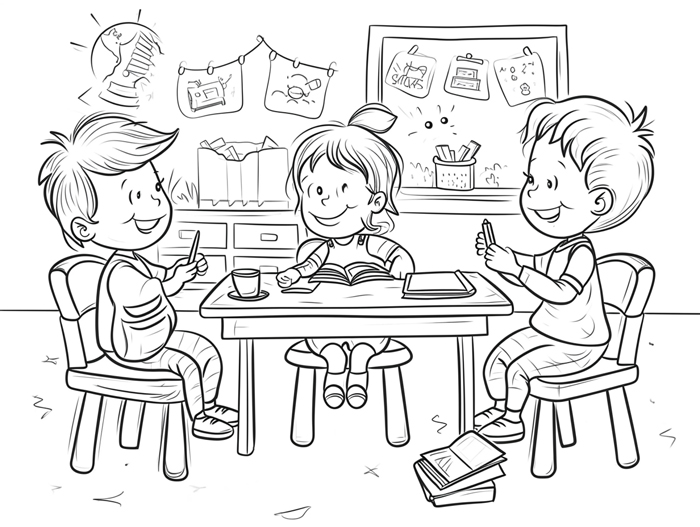
Encouraging a Positive Self-Image
When it comes to boosting a child’s confidence, words of affirmation play a crucial role. By consistently using positive and empowering words, parents can help shape their child’s self-image in a positive way.
Children are vulnerable and highly influenced by the words they hear from their parents and caregivers. By using words of affirmation, such as “You are capable,” “You are loved,” or “You did a great job,” parents can instill a sense of self-worth and confidence in their child.
These positive words help children develop a healthy self-concept, enabling them to see themselves as competent, worthy, and capable individuals. It sets a strong foundation for their self-esteem to grow and flourish.
Building Resilience and Growth Mindset
In addition to fostering a positive self-image, words of affirmation also play a pivotal role in building resilience and encouraging a growth mindset in children.
By using phrases like “Mistakes help us learn” or “You can always improve with practice,” parents can help their children develop a growth mindset. This mindset emphasizes the belief that abilities and intelligence can be developed through dedication and effort.
When children are praised for their efforts and progress instead of just their accomplishments, they learn to embrace challenges and view setbacks as opportunities for growth. This leads to greater resilience and a willingness to take on new challenges, even in the face of adversity.
A growth mindset allows children to develop skills such as problem-solving, perseverance, and adaptability, which are essential for success and personal development.
Remember, incorporating words of affirmation into your daily interactions with your child can have a profound impact on their confidence, resilience, and overall well-being. By consistently using positive and empowering words, you are helping to shape their mindset and reinforce their worth. Keep nurturing their self-esteem with words of affirmation, and watch them grow into confident and resilient individuals.
Practical Tips for Using Words of Affirmation with Kids
Be Specific and Genuine in Your Praise
When using words of affirmation with kids, it’s important to be specific and genuine in your praise. Instead of using generic compliments like “good job” or “great job,” try to provide specific feedback that highlights the child’s effort or achievements in a particular task. This not only shows that you are paying attention to their actions but also helps them understand what they did well. For example, instead of saying “good job on your artwork,” you could say “I love how you used different colors to create a beautiful picture. You are so creative!”
Use Positive Phrases and Language
Using positive phrases and language is another effective way to boost a child’s self-esteem and confidence. Instead of focusing on the negatives or pointing out mistakes, try to frame your words in a positive and encouraging manner. For example, instead of saying “Don’t spill your milk,” you could say “Remember to hold your cup steady so your milk stays in the cup.” This not only helps the child feel supported and encouraged, but it also teaches them how to improve their behavior without feeling criticized.
Additionally, it’s important to use positive and uplifting language when giving feedback or addressing challenges. Instead of saying “You can’t do it,” you could say “I believe in you and know you can figure it out.” This helps them develop a growth mindset and encourages them to persevere in the face of obstacles.
Incorporate Affirmations into Daily Routines
To make words of affirmation a regular part of your child’s life, incorporate them into daily routines. You can start the day with a positive affirmation, such as “Today is going to be a great day!” Encourage your child to share their goals or something they’re proud of, and provide affirmations that reinforce their efforts or achievements. For example, if they say, “I want to finish my puzzle today,” respond with “That’s a fantastic goal! I know you can do it. I’m proud of your determination.”
Incorporating affirmations into daily activities such as mealtimes or bedtime is also a great way to reinforce positive messages. Encourage your child to share something they appreciate about themselves or their day. This helps create an environment of positivity, self-reflection, and self-worth.
Remember, using words of affirmation is not a one-time event, but a continuous practice. By being specific and genuine in your praise, using positive phrases and language, and incorporating affirmations into daily routines, you can help build your child’s self-esteem and confidence, and nurture a positive mindset that will benefit them throughout their lives.
The Impact of Words of Affirmation on Child-Parent Relationships
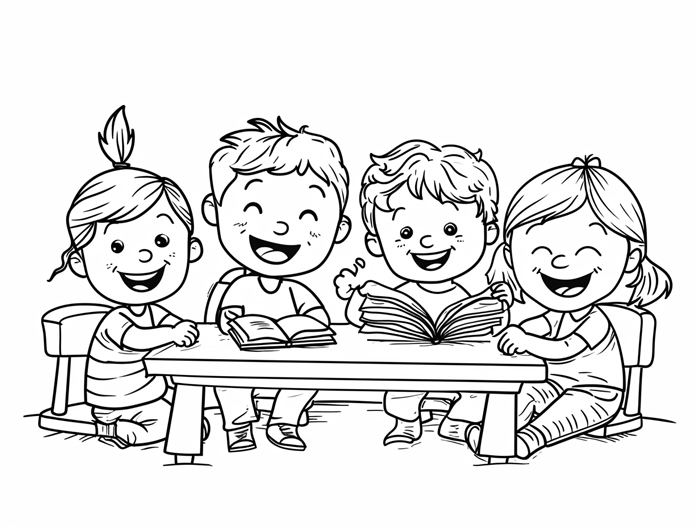
When it comes to building strong and healthy relationships with our children, the power of words cannot be underestimated. The words we choose to speak to our children have a profound impact on their self-esteem, confidence, and overall well-being. Using words of affirmation is a powerful tool that can strengthen the bond between parents and children. Let me share with you some insights on the impact of words of affirmation on child-parent relationships:
- Boosts self-esteem: Positive and encouraging words can do wonders for a child’s self-esteem. When children consistently hear words of affirmation from their parents, it instills in them a sense of worth and value. They feel seen, heard, and loved. This, in turn, helps them develop a healthy sense of self and resilience to face challenges.
- Nurtures emotional connection: Words of affirmation create a nurturing environment that fosters emotional connection between parents and children. When we vocalize our love, pride, and belief in our children, they feel emotionally supported. This strengthens the parent-child bond and creates a safe space for open communication and sharing of feelings.
- Encourages positive behavior: Words of affirmation have the power to reinforce positive behavior in children. When we use specific and genuine praise to acknowledge their efforts and achievements, we motivate them to continue their positive behaviors. This helps in shaping their character, instilling good habits, and fostering a sense of personal responsibility.
- Builds trust and respect: When parents consistently use words of affirmation, it builds trust and respect between them and their children. Children feel safe in expressing themselves and their emotions, knowing that their parents will respond with kindness and understanding. This open and respectful communication strengthens the parent-child relationship and lays the foundation for a healthy and trusting bond.
- Creates a positive mindset: Words of affirmation contribute to the development of a positive mindset in children. When they constantly hear positive and empowering words, it shapes their internal dialogue and belief system. This cultivates a mindset focused on growth, perseverance, and optimism, which can greatly benefit them in all aspects of life.
Words of Affirmation for Different Ages and Stages of Childhood
Affirmations for Toddlers and Preschoolers
When it comes to toddlers and preschoolers, using words of affirmation is a powerful way to help build their self-esteem and confidence. Here are some affirmations that are suitable for this age group:
- “You are so brave!”
- “You are a great helper!”
- “You are so kind and thoughtful!”
- “You have a wonderful imagination!”
- “You are so loved and cherished!”
Using these affirmations consistently can boost their self-belief and encourage positive behavior. Remember to keep the language simple and use words that they can easily understand.
Affirmations for Elementary School-Aged Children
As children enter the elementary school years, their world expands, and they begin to face new challenges and experiences. Here are some affirmations that can support their growth and development during this stage:
- “You are capable of anything you set your mind to!”
- “Your effort and hard work are paying off!”
- “You have a unique and special talent!”
- “You are a good friend and a great team player!”
- “You are resilient and can overcome any obstacles!”
Using these affirmations can help them develop a positive mindset as they navigate through their academics, friendships, and personal goals.
Affirmations for Teenagers
During the teenage years, adolescents are going through significant changes and are often dealing with various pressures. Using affirmations can help them build resilience, confidence, and emotional well-being. Here are some affirmations that are appropriate for teenagers:
- “You are capable of making wise decisions!”
- “You have the strength to overcome challenges!”
- “You are deserving of love and respect!”
- “Your opinion matters, and your voice is important!”
- “You have the ability to achieve your dreams!”
It’s important to remember that teenagers appreciate honesty and authenticity. Incorporating these affirmations in your daily conversations can strengthen the bond with your teenager and help them navigate their way through this transformative stage of life.
Using age-appropriate affirmations tailored to each stage of childhood is an effective way to nurture a child’s self-esteem, encourage positive behavior, and foster a strong parent-child relationship. These practices foster emotional connection, build trust and respect, and create a positive environment for the child’s overall well-being.
The Power of Words: How Negative Words Can Affect Kids
As parents, it’s crucial that we recognize the immense power our words hold, especially when it comes to our children. The way we speak to them has a profound impact on their self-esteem, emotional well-being, and overall development. Negative words, spoken harshly or without thought, can have long-lasting effects on their confidence and self-worth. Let’s delve into the importance of positive affirmations and how negative words can affect kids.
1. Stunted self-esteem: When children consistently hear negative words or criticism, their self-esteem can take a hit. They may start believing that they are not good enough or incapable of achieving success. This can have a detrimental effect on their confidence and ability to take risks.
2. Emotional distress: Negative words can cause emotional distress in children. Constant criticism or harsh language can create anxiety, stress, and sadness. They may begin to doubt their abilities and internalize negative beliefs about themselves.
3. Behavioral issues: Negative words can also lead to behavioral problems in children. When they are constantly berated or put down, they may act out in frustration or aggression. Negative words can erode the parent-child relationship and create a cycle of negative behavior.
4. Limiting beliefs: The words we use can shape a child’s perception of themselves and their abilities. Negative words can create limiting beliefs, making them believe that they are not capable of achieving their goals. This can hinder their personal growth and limit their potential.
5. Communication breakdown: Constant use of negative words can lead to a breakdown in communication between parents and children. When children feel that their words are met with criticism or disregard, they may stop expressing themselves openly. This can hinder their emotional development and prevent the formation of a strong parent-child bond.
It’s essential that we choose our words carefully and consciously when speaking to our children. By using positive affirmations and avoiding negative words, we can create a nurturing environment that fosters self-esteem, emotional well-being, and positive behavior in our kids.
Conclusion: Strengthening Bonds Through the Power of Positive Words
In this article, we have explored the profound impact of using words of affirmation on child-parent relationships. By incorporating positive and encouraging language, parents can create a nurturing environment that fosters self-esteem, emotional well-being, and positive behavior in their children.
We have discussed the importance of tailoring affirmations to different age groups, from toddlers and preschoolers to elementary school-aged children and teenagers. By using age-appropriate affirmations, parents can effectively nurture their child’s self-esteem, encourage positive behavior, and build a strong parent-child relationship.
Furthermore, we have highlighted the negative consequences of using negative words on children, including stunted self-esteem, emotional distress, and communication breakdown. It is crucial for parents to choose their words carefully and consciously, as they have the power to shape a child’s beliefs and mindset.
By incorporating words of affirmation into our daily interactions with our children, we can strengthen the bond between parent and child. This not only creates a positive environment but also fosters trust, respect, and emotional connection.
Let us remember the power of our words and use them to uplift, encourage, and inspire our children. Together, we can create a generation of confident, resilient, and emotionally well-rounded individuals.
